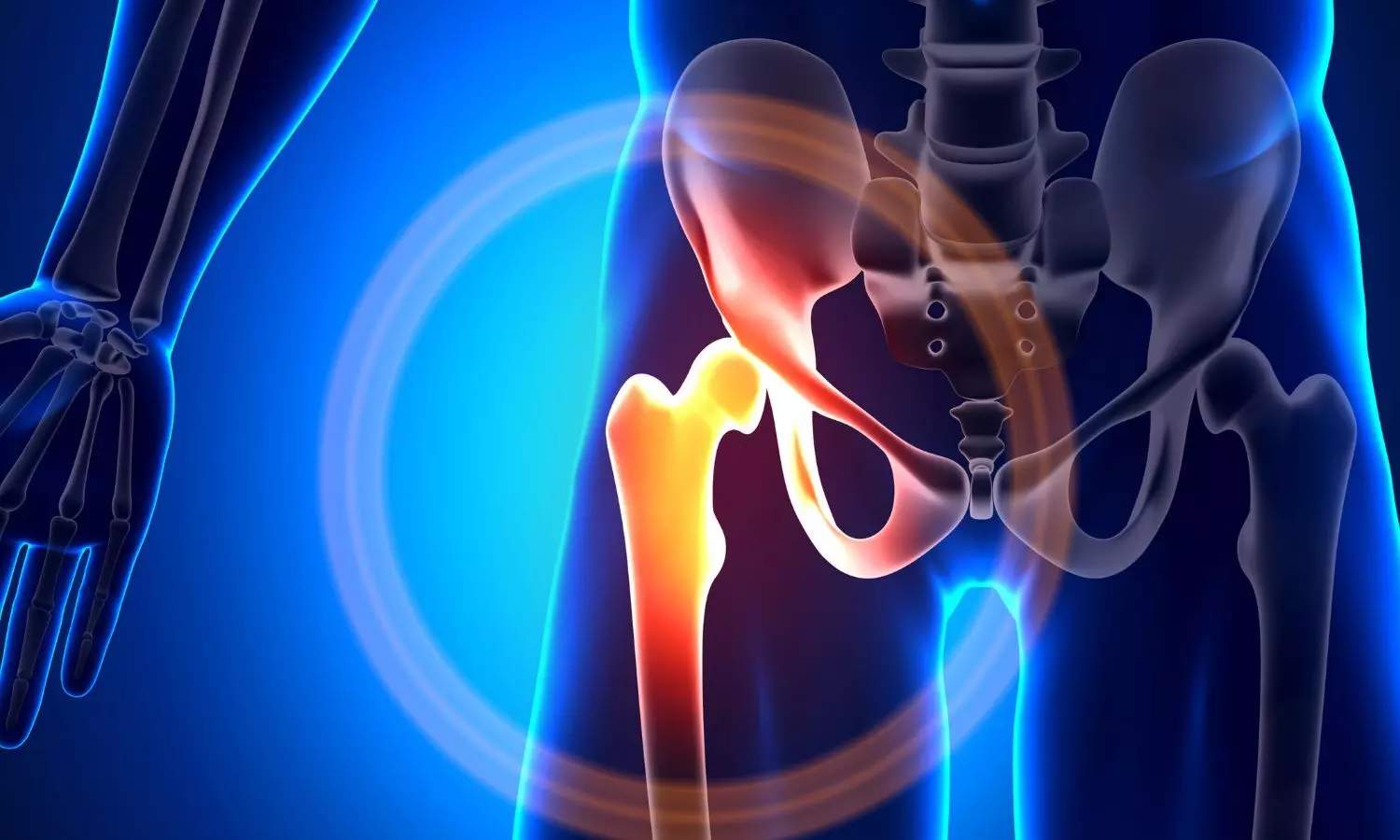Elderly Woman Walks Again After High-Risk Hip Surgery at KIMS Hospitals, Thane

KIMS Hospitals, Thane, successfully carried out a high-risk right total hip replacement surgery on a woman in her 60s, who was suffering from multiple health conditions, including osteoporosis, Sjogren’s syndrome, renal tubular acidosis, hypokalemia, and anaemia.
The procedure was undertaken after weeks of missed diagnosis, prolonged immobility, and severe pain.
The patient, recently diagnosed with Sjögren’s syndrome and pneumonia, initially showed some improvement with treatment but later developed persistent hip pain and weakness. Despite several consultations elsewhere, she remained unable to walk pain-free for nearly three months.
An MRI scan at KIMS Hospitals revealed a full-thickness impacted undisplaced fracture in the neck of the right femur that had gone undetected for weeks, along with associated oedema and mild hip joint effusion.
The complexity of her case was heightened by advanced osteoporosis, chronic anaemia, electrolyte disturbances, and Sjogren’s syndrome with distal renal tubular acidosis (RTA), conditions known to slow healing and increase surgical risk.
A multidisciplinary team of specialists from orthopaedics, rheumatology, endocrinology, nephrology, pulmonology, and cardiology stabilised her condition and prepared her for surgery.
The operation was performed under general anaesthesia by Dr Parth Agrawal, Consultant – Arthroscopy, KIMS Hospitals, Thane. After surgery, the patient was closely monitored in the ICU before being shifted to the ward once stable. She responded positively to physiotherapy and infection control measures.
“Despite her comorbidities and delayed diagnosis, the patient has shown good recovery. The surgical plan was carefully tailored to minimise risks, and she has now regained mobility and is ready for discharge,” said Dr Parth Agrawal.
Dr Natasha Negalur More, Consultant Rheumatologist, KIMS Hospitals, noted, “Patients with Sjogren’s syndrome and distal RTA often face fluctuating potassium levels and bone complications, making them prone to fractures and slow recovery. A coordinated approach was crucial in this case.”
Emphasising the need for comprehensive care, Dr Vijay Negalur, HOD – Diabetology, KIMS Hospitals, added, “Complex conditions like anaemia, electrolyte imbalance, hypothyroidism, and autoimmune disorders require personalised treatment.
The positive outcome was possible due to timely intervention and effective teamwork across departments.”
Following surgery, the patient underwent structured physiotherapy and rehabilitation, showing steady improvement without major complications. She was discharged with a customised plan for diet, medication, and exercise to support long-term recovery.
This case underlines the importance of early diagnosis, collaborative care, and individualised treatment strategies in managing high-risk orthopaedic cases, particularly in elderly patients with multiple systemic conditions.


